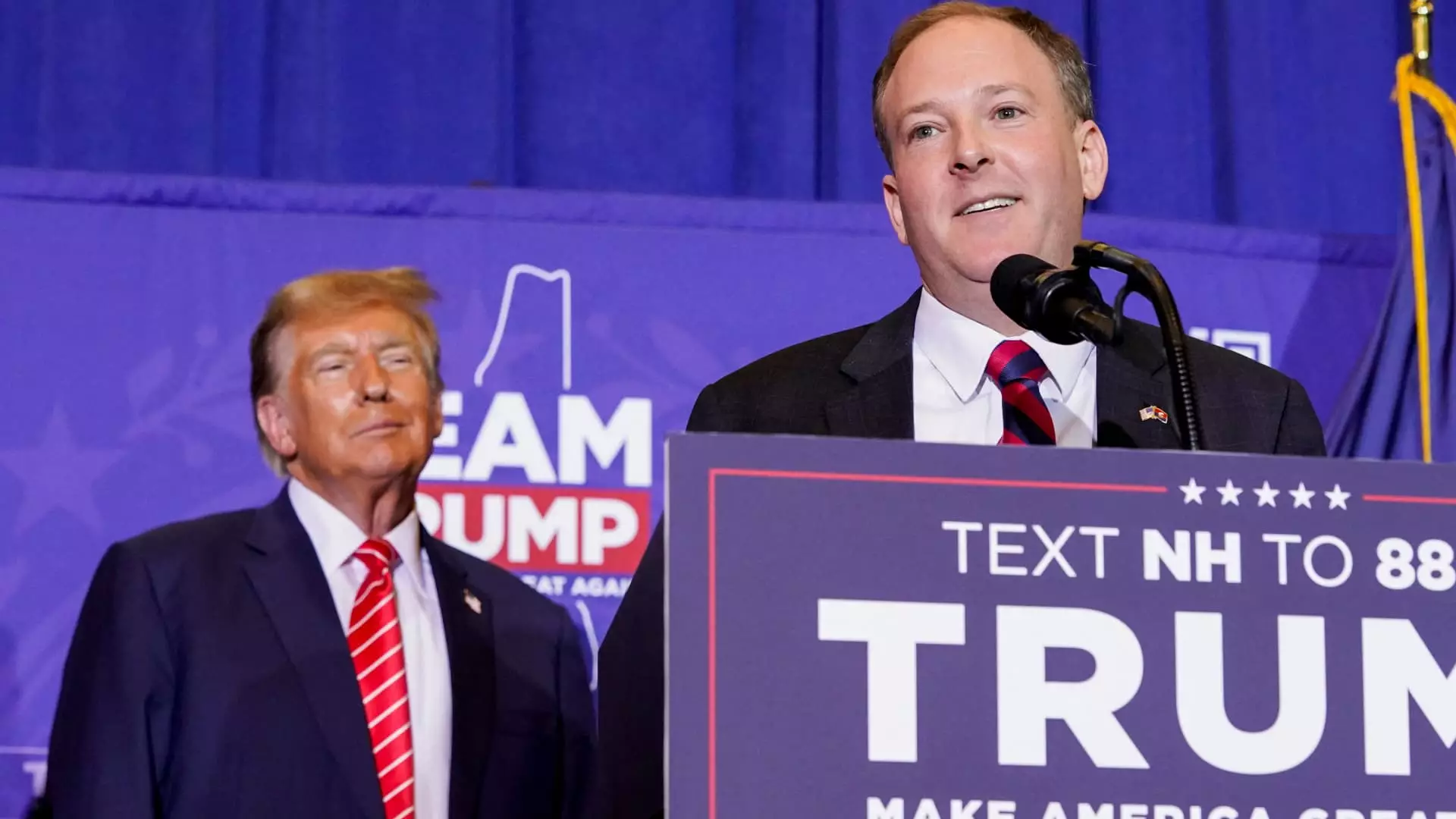The recent announcements regarding President-elect Donald Trump’s key appointments signal a significant direction in U.S. environmental policy and diplomatic relations. Two prominent figures from New York, former Rep. Lee Zeldin and current Rep. Elise Stefanik, have been chosen for pivotal roles within Trump’s incoming administration, namely the Environmental Protection Agency (EPA) and the United Nations ambassador position, respectively. This move not only reflects Trump’s “America First” agenda but also reveals the underlying political strategies that will shape the nation’s future governance and international standing.
Zeldin, a former congressman with a legal background, has cultivated a reputation as a staunch advocate for deregulation. His appointment as EPA Administrator has been met with both hope and skepticism. Trump commended Zeldin for his commitment to “unleash the power of American businesses,” while promising to adhere to high environmental standards. This dual focus raises immediate questions about the practical implications of such policies, particularly concerning environmental sustainability. Critics, including leading environmental organizations, have expressed serious concerns about Zeldin’s track record, which has been marked by a mere 14% lifetime rating from the League of Conservation Voters. This statistic underscores a broader agenda perceived as being aligned with corporate interests rather than the ecological welfare of the nation.
In his acceptance, Zeldin pledged to restore U.S. energy dominance and elevate the automotive sector, initiatives rooted in economic growth. The language used in his statements reflects a clear alignment with traditional Republican values that prioritize industry over environmental regulations. The potential consequences of significantly rolling back environmental protections could have long-lasting effects, not only on conservation efforts but also on public health. The concern among environmental activists is palpable, as they view Zeldin’s appointment as indicative of a larger strategy to prioritize economic considerations at the expense of ecological integrity.
On the diplomatic front, Elise Stefanik’s nomination as U.N. ambassador presents an interesting intersection of politics and policy. Recognized as a leading voice among Republicans, her selection is not merely a bid to strengthen the party’s presence in Washington but also a calculated step to bolster U.S. standing on the global stage. Stefanik’s endorsement of Trump during his 2016 campaign signifies a strong loyalty that may translate into cooperation within the U.N. framework, aligning with Trump’s vision of “Peace through Strength.”
Stefanik’s existing leadership roles within the House Armed Services and Intelligence Committees position her as a capable player in national security debates. Her track record also includes initiatives targeting antisemitism, suggesting a commitment to human rights issues that may resonate positively in international discussions. However, her effectiveness as ambassador will largely depend on her ability to navigate the complex geopolitics of a rapidly changing world, especially as the Republican Party faces uncertainties regarding its control in Congress.
Additionally, the implications of these appointments extend beyond cabinet positions and into the realm of congressional dynamics. Stefanik’s move to the U.N. could pave the way for a shift in the House balance since her departure may reduce the GOP’s numerical advantage. This change could influence legislative outcomes significantly as the party contemplates its strategy moving into 2025. With an anticipated slim majority, every seat will be crucial for maintaining their agenda.
As these developments unfold, one must consider the broader ramifications. Appointing individuals with polarizing stances in key roles could exacerbate existing partisan divides, challenging bipartisan cooperation essential for addressing pressing national and global issues. The potential for legislative gridlock looms large if both sides remain entrenched in their ideologies.
Donald Trump’s appointment of Lee Zeldin and Elise Stefanik as pivotal figures in his administration encapsulates his political ethos of prioritizing economic growth while maintaining a robust national security posture. However, these selections also ignite spirited debates on the balance between ecological integrity and industrial progress, as well as the health of congressional collaboration. It remains to be seen how these appointments will manifest in policy and whether they will succeed in addressing the delicate interplay between economic ambitions and environmental responsibilities in the years to come. As observers, we must remain vigilant and proactive in advocating for sustainable practices that benefit every American.


Leave a Reply